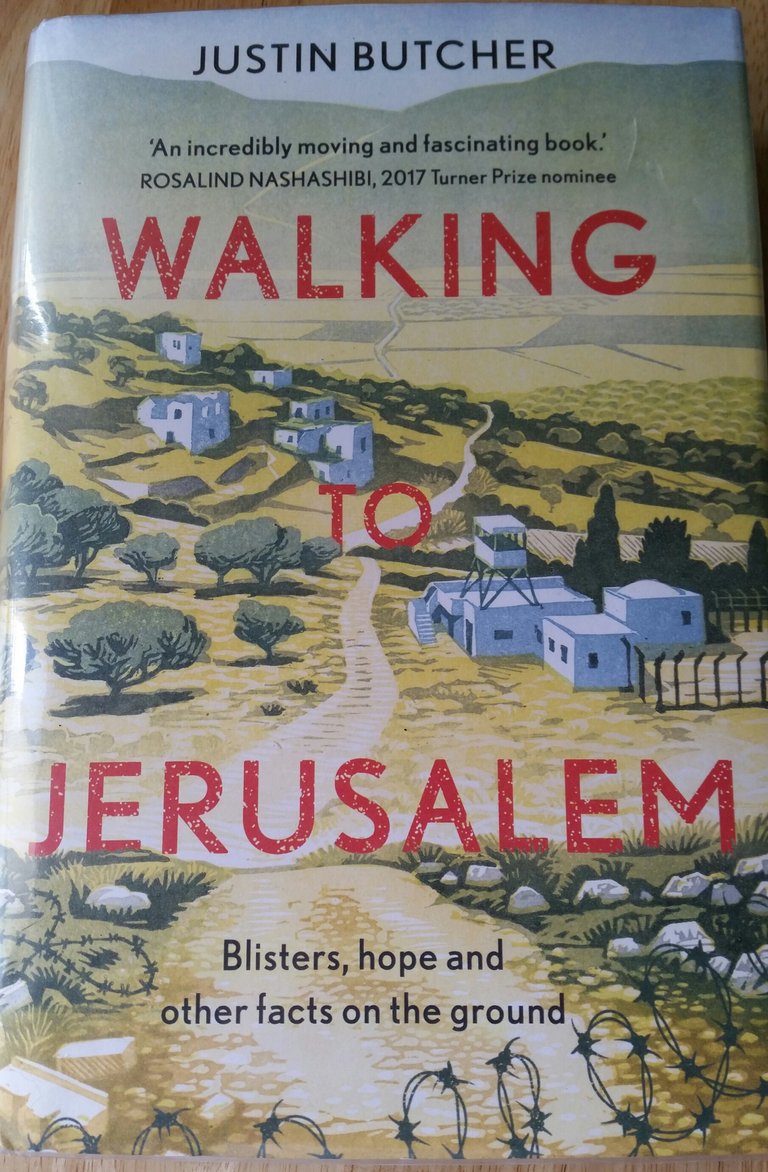I recently read Justin Butcher's Walking to Jerusalem. The book is about the author's experience of walking from London to Jerusalem with 60 others in support for equal rights to all people in the Holy Land.

The book raises some interesting suggestions which I personally, had not considered before. I will identify these in this piece:
The British government were responsible for the Balfour Declaration, yet many British people are unaware of it. Furthermore, as these activists suggest many British people are not in agreement with it and wish to apologise to the Palestinian families who have suffered as a result of it.
The British ambassador Philip Hall OBE acknowledges that the Occupation should end and that it is illegal. The British government's response has been through diplomatic efforts such as funding the salaries of teachers in Gaza and supporting the reconciliation between Hamas and Fateh.
The British Ambassador, says that the stucking point is 'penance' and the full blame is not something the British government can agree with. He says, "We should also remember that there were many steps between the Balfour Declaration and the creation of the state of Israel, not least the UN resolution of 1947. We support Israel, we regard Israel as a friend and, within it's pre-1967 borders as a country that we like and find admirable, and a democracy in the region, which we support".
Butcher suggests that a proper acknowledgent from the British government of it's historic actions might actually liberate Israel, to some extent, from it's role as the 'bad guy' and rebalance the narrative. Yet, the issue of penance is currently restricting this and there seems to be an ambivalence about the correct response to Israel's occupation of Palestinian lands which fall beyond the 1967 borders.
A different point from Chris, one of the walkers, is that he feels that the Palestinians have been the victims of 100 years of history and if they feel abused and dispossessed, as the victims of injustice, they should be the ones to determine whether an apology is due.
Overall, the book raises some important questions, has Britain done enough and is it doing enough? Is there a more effective way for the voices of the Palestinians to be heard? Are the current diplomatic efforts made by Britain the best methods to improve the situation? Is Britain responsible? Or the United Nations? Or someone else? Do the Palestinians require an apology? Would an apology help the situation?
For a resolution to be found Britain and representatives from all sides must listen and learn from each other and be willing to focus on future focused outcomes.
This will be a difficult task yet without it, as the book suggests, the Palestinians may have to wait another 2000 years so they can claim a historic claim to the land (much like the Jews previously). As reports of protests and responses from the Israeli forces continue, for the sake of all those affected by the conflict we must hope there is a meaningful and effective resolution as soon as possible.